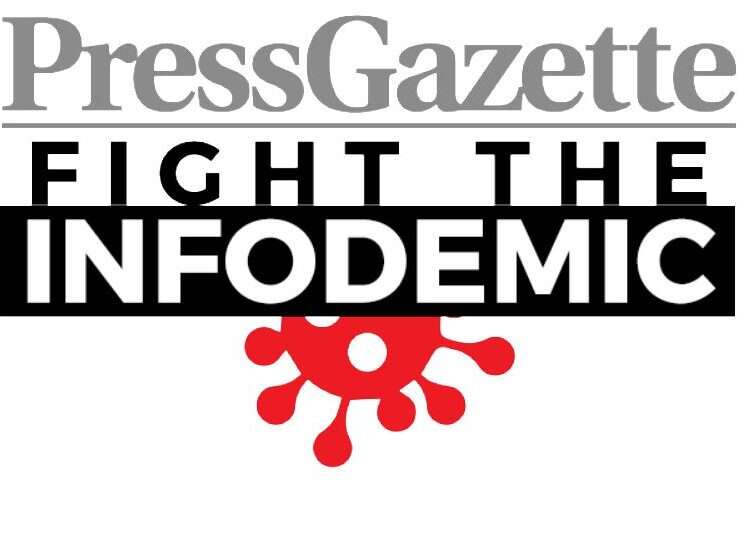
Nearly a fifth of British adults are likely to refuse a Covid-19 vaccination in an apparent response to “anti-vaxx” conspiracy theories widely spread on social media, a new survey suggests.
The study, conducted by Yougov for the Center for Countering Digital Hate, found a further 15% were unsure about taking a vaccine.
The survey also discovered that people who use social media more than traditional media for news are less inclined to take a vaccine.
Press Gazette has been campaigning for social media companies to crack down on coronavirus misinformation, with our investigations finding that millions have been reading and viewing untrue conspiracy theories online.
The CCDH believes the survey results show there is a credible “threat to the ability of a vaccine to contain Covid-19”.
In a separate report released in conjunction with the survey, the CCDH found there has been a “dramatic rise” in the number of accounts following anti-vaxx pages on social media.
The report analysed more than 400 anti-vaxx accounts across Facebook, Youtube, Twitter and Instagram. It found that, across the US and UK, there are more than 57m followers of such accounts. They said this number has increased by 7.7m since the outbreak of coronavirus.
The CCDH found numerous false conspiracy theories circulating on social media, including claims that Bill Gates created the virus, that vaccines cause Covid-19, and that tests for the vaccine had caused women to become infertile.
The campaign group claimed that social media companies have “chosen to adopt lenient policies” on the content.
It said: “Facebook, Twitter and YouTube promise only to reduce the ease with which users can find anti-vaccine content, and refuse to remove content or pages and groups which publish anti-vaxx content. Anti-vaxx advocates have successfully navigated these weak policies to exploit the new opportunities coronavirus has presented and grow their audiences.”
Imran Ahmed, chief executive of the CCDH, said:“Our hope for a return to normal life rests with scientists developing a successful vaccine for coronavirus.
“But social media companies’ irresponsible decision to continue to publish anti-vaccine propaganda means a vaccine may not be effective in containing the virus. The price for their greed is a cost paid in lives.
“There is simply no responsible justification for publishing lies and conspiracy theories about vaccines.”
The Yougov survey asked 1,663 British adults on 24 and 25 June whether they would take a Covid-19 vaccine if it became available. The results were:
- Definitely will get vaccinated: 38%
- Probably will get vaccinated: 31%
- TOTAL PROBABLY/DEFINITELY WILL: 69%
- Probably will not get vaccinated: 10%
- Definitely will not get vaccinated: 6%
- Don’t Know: 15%
- TOTAL MAY NOT GET VACCINATED: 31%
The CCDH also broke down the information by where participants get their news.
Of those who use social media more than mainstream media for their news, 34% would definitely take a vaccine, and 29 per cent would probably do so. Of those who rely more on mainstream media for news, 41% would definitely take the vaccine, and 31% would probably do so.
A Facebook spokesperson said: “We are working to stop harmful misinformation from spreading on our platforms and have removed hundreds of thousands of pieces of Covid-19-related misinformation.
“We reduce vaccine misinformation in News Feed, we don’t show it in search results or recommend it to you on Facebook or Instagram, we don’t allow it in ads, and we connect people with authoritative information from recognised health experts.”
Email pged@pressgazette.co.uk to point out mistakes, provide story tips or send in a letter for publication on our "Letters Page" blog
